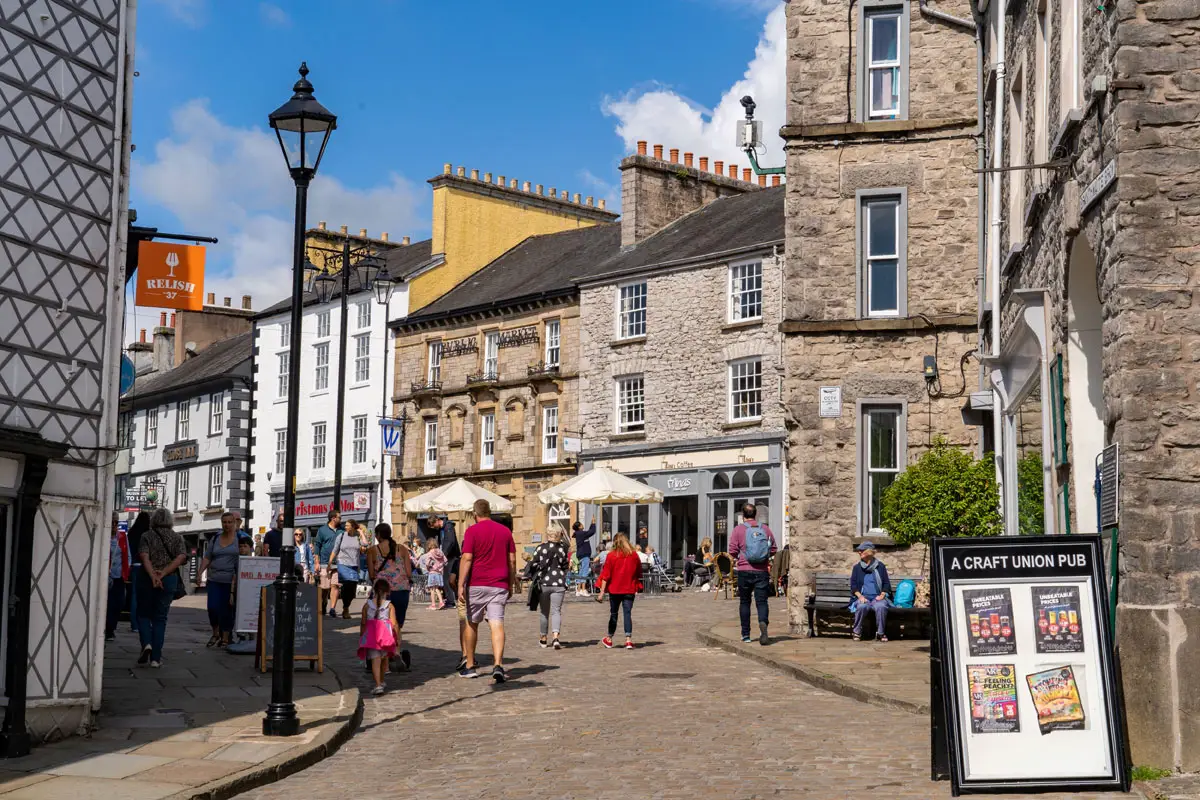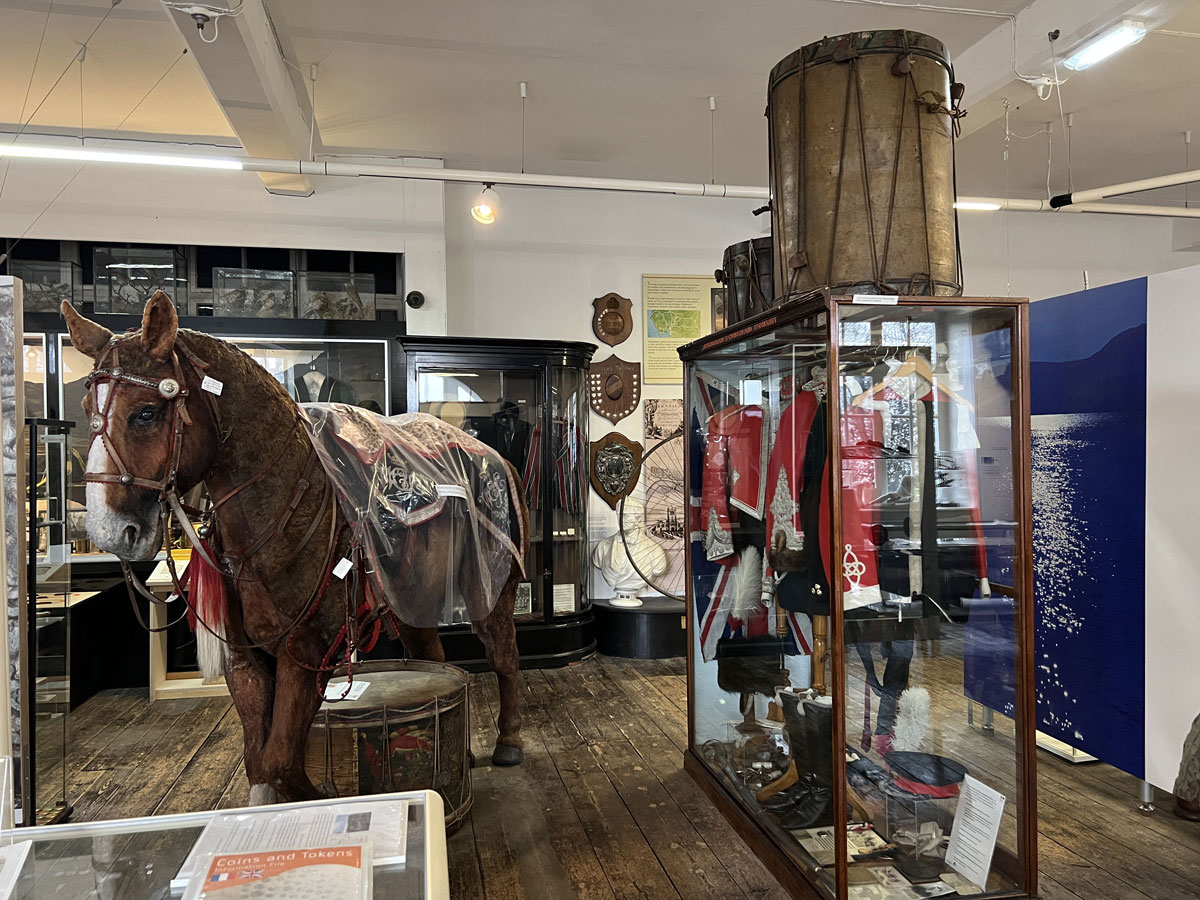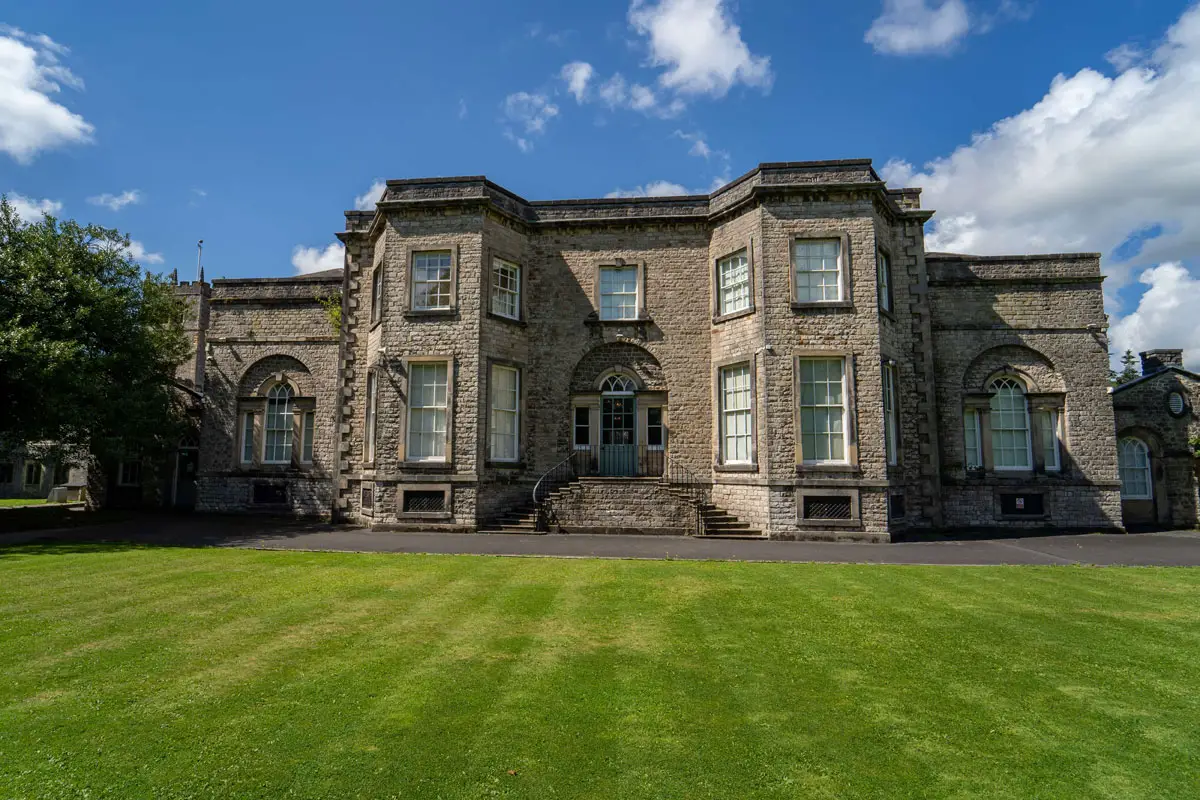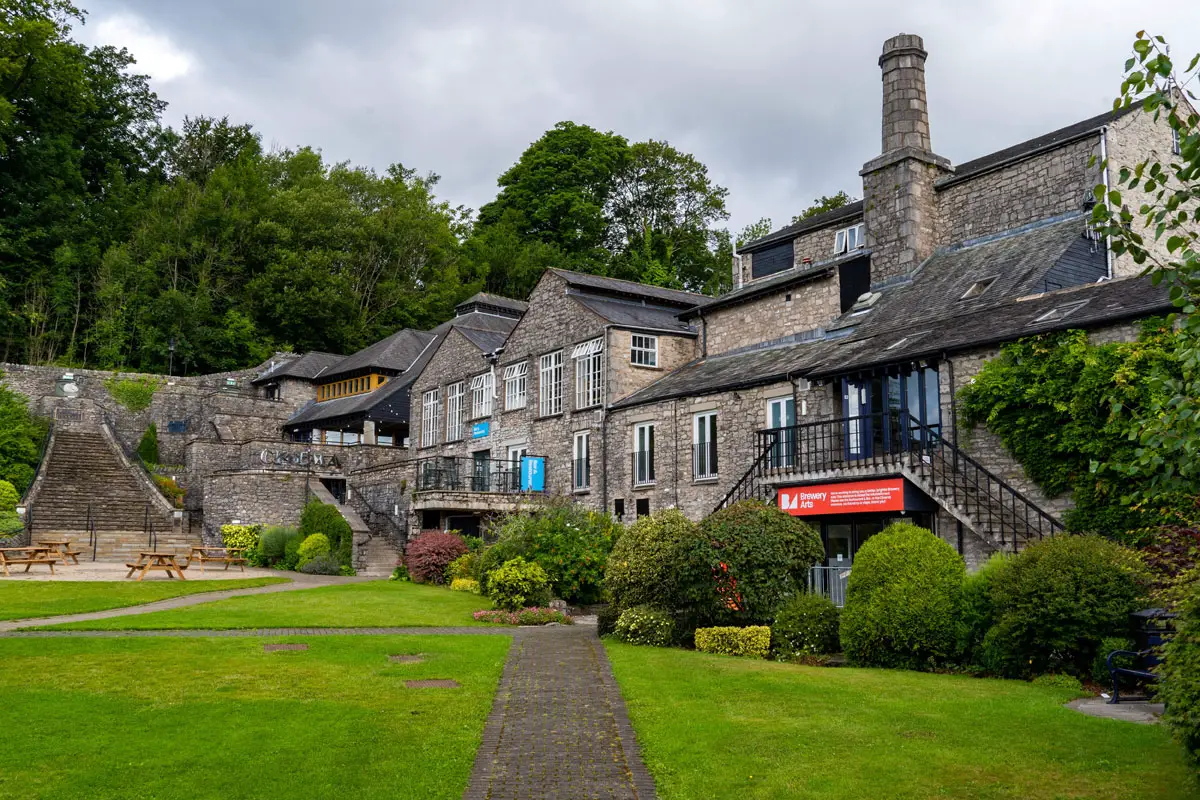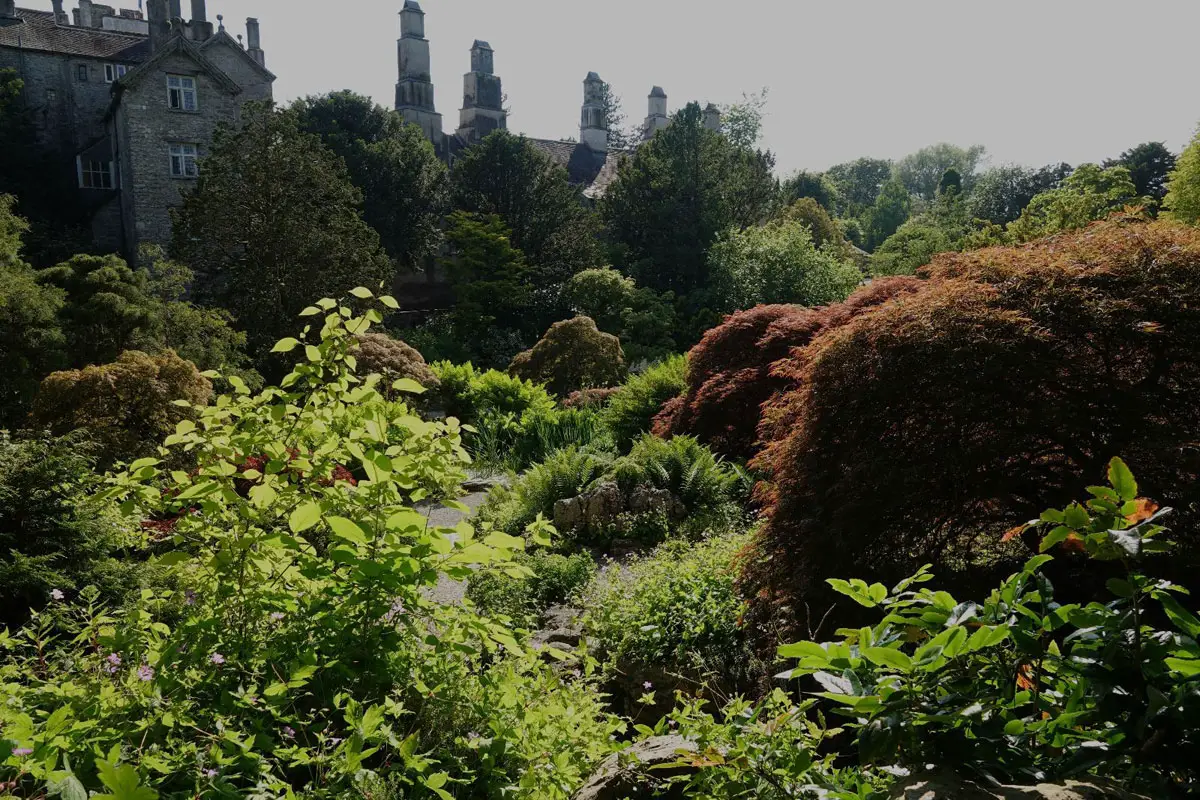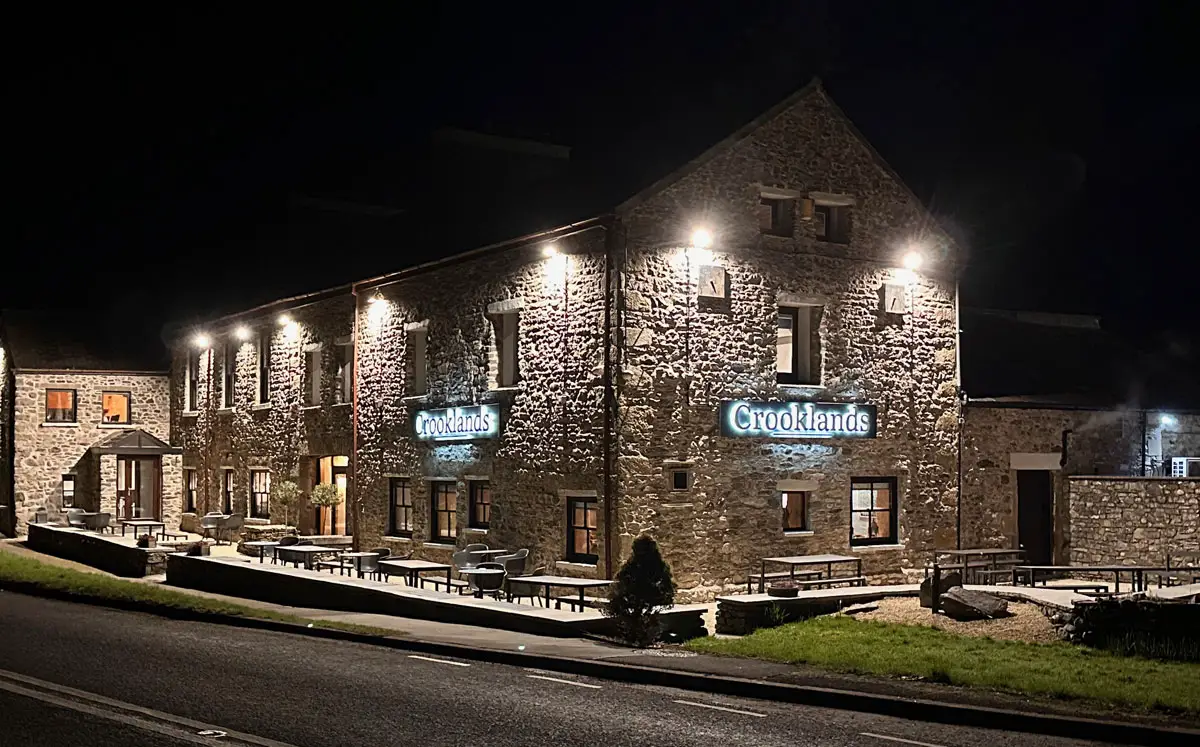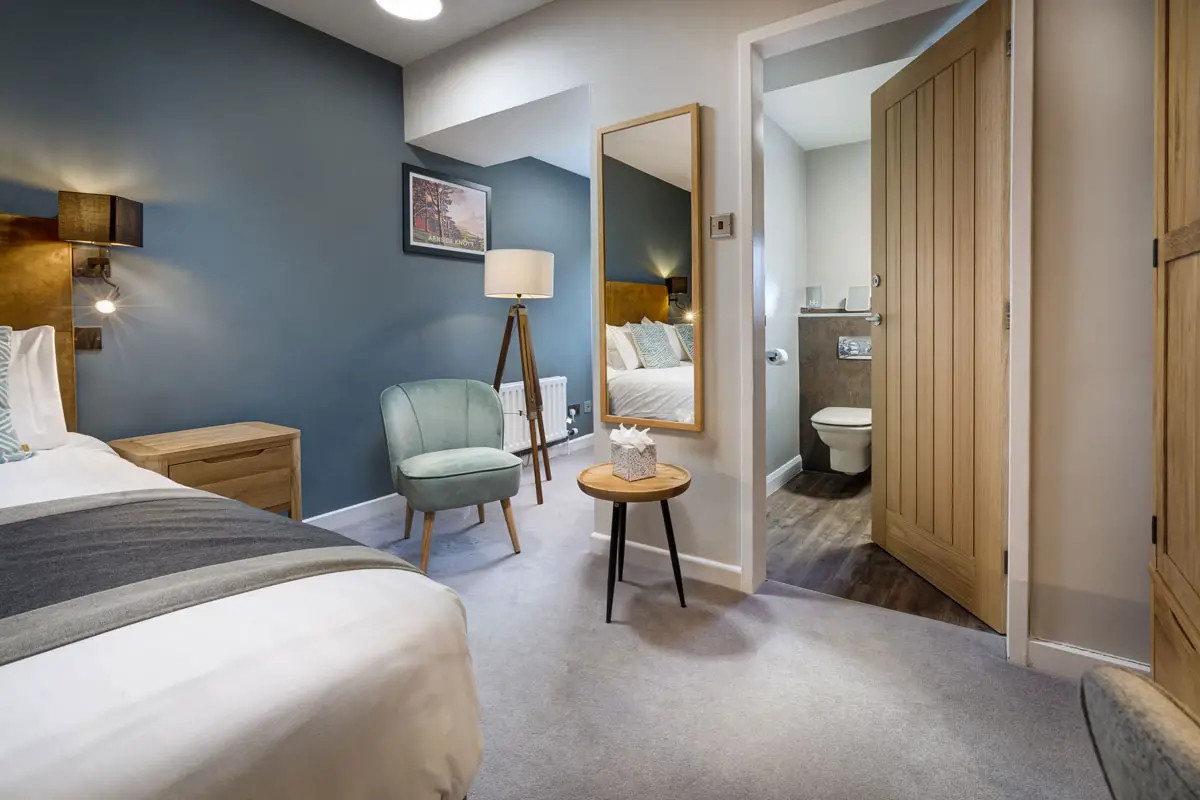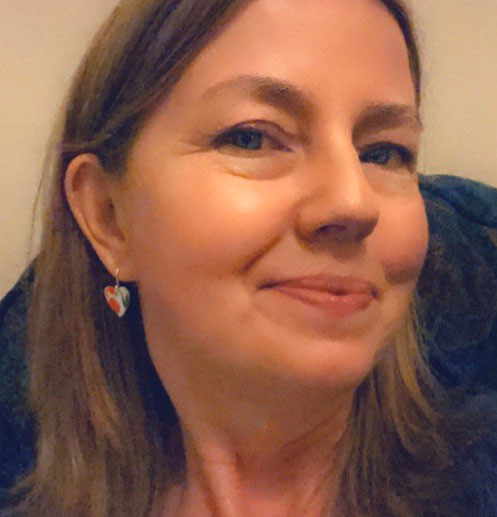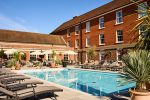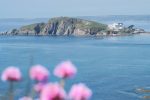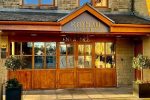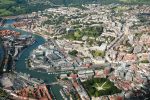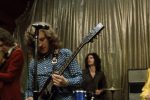More than The Lakes: Visiting Kendal’s Cultural Corners – Travel Review

By Helen Johnston, July 2024
If someone mentions taking a holiday in Cumbria you might immediately imagine hiking up a hill or sailing across a lake. In the rain.
So, you might be surprised to learn that this county, famous for the Lake District, has lots to offer those who wish to pursue gentler, more cultural pursuits. Those who enjoy the beautiful scenery but don’t necessarily want to be out battling the elements in it.
Art, history, music, and cosy cafes can all be found if you know where to look. And Kendal in the southeast of the county is a good place to start your cultural journey.
Nicknamed the ‘auld grey town’ because of the colour of its limestone buildings, it might seem a bit dour at first, especially when the sky is grey too. But don’t be put off because it contains some hidden gems to add colour to your visit, such as the Quaker tapestry.
“Fascinating and engaging”
Housed appropriately enough in the Quaker Tapestry Museum, this is an incredible work of embroidered art which details key historic moments in Quakerism. It took 15 years and more than 4,000 people across the world to complete the 77 panels of intricate stitching which document and celebrate the achievements of the movement begun by George Fox in 1652.
That was the year he preached his non-conformist Christian message to a large crowd at Firbank Fell, between Kendal and Sedbergh. His association with this area is why the tapestry is housed here, in a building which includes a Quaker meeting house.
There are 46 of the panels on display in the museum and they provide a fascinating and engaging way to portray history for young and old. An audio guide explains the background to the tapestry which was inspired by an 11-year-old boy and his Sunday school teacher at a Quaker meeting in Taunton, Somerset. A family fun day is planned at the museum for July 20.
Fox travelled to Doncaster and Wakefield before reaching the northwest and several of the tapestry panels feature Yorkshire connections such as master mariner Robert Fowler, who in 1657 used his ship to take 11 Quakers on a two-month voyage to New England. A panel about the wool trade includes two cloth halls in Leeds and the Leeds Liverpool Canal.
“Frozen in time”
There’s a more eclectic mix of Cumbrian history to be found at Kendal Museum where the entrance leads into a large exhibition room containing a captivating array of memorabilia, everything from a bust of guidebook author Alfred Wainwright to pipes, military medals and a penny farthing.
If the idea of Victorian taxidermy leaves you cold, avoid the basement room. It’s a sad reminder of how birds and animals, some now near to extinction, were hunted as trophies to be put in glass cases and hung on walls in big houses. There are even stuffed chicks with their parent birds, not even allowed to reach maturity.
There are animals from every continent – monkeys, tigers, kangaroos, chimpanzees, birds of all size and colour, a hippo and a zebra – forever frozen in time. Museum assistant Holly Walling explained that the exhibition is to be overhauled to help visitors make sense of its colonial past and its place in history. Volunteers are being recruited to research, discuss and transform the gallery to take account of decolonisation, animal rights, climate change and loss of biodiversity.
On a similar theme, the museum is currently hosting the Cry of the Curlew exhibition, highlighting the plight of this ground-nesting bird which is on red alert for extinction. The exhibition was previously in Hawes, in the Yorkshire Dales, and will be moving up to Orkney after closing in Kendal.
It can be disheartening to learn about the depletion of bird life as the climate crisis worsens, but it is also encouraging to know that people are doing something about it. A haunting soundtrack of the curlew’s cry, poems and photos, all celebrate this fragile bird. There are also wire sculptures of curlews which can be bought at a starting price of £325.
“Cultural hub”
There’s a sculpture by Wakefield’s Barbara Hepworth at Abbot Hall art gallery, along with a range of portrait and landscape paintings. I was lucky enough to catch the last day of the Gilbert Spencer exhibition which included cartoon-like paintings, watercolours and portraits he created at Ambleside during the Second World War. This was when Royal College of Art staff and students were evacuated to the Lake District.
Another exhibition, which is running until August 3, is Claude Cahun: Beneath This Mask. This is a collection of black and white self-portraits exploring gender and identity. We might assume this is a modern-day concern, but far from it. Cahun was born Lucy Schwob in 1894 and adopted her pseudonym in 1917. Her work investigates the idea that we all have more than one ‘mask’.
Kendal also has a cultural hub at the Brewery Arts centre where tribute band Fleetwood Bac were raising the roof of the Malt Room on my visit. And very good they were too. The centre also houses a cinema and theatre and an excellent restaurant and bar which were buzzing. The menu has something for everyone, with vegetarian, vegan and gluten-free options as well as meat and fish choices. The Swiss mushroom burger, and rocket and parmesan salad were very tasty. The centre was really busy on this particular Saturday night, which was good to see but it could do with a larger car park to cope with demand – although there are two other car parks within a five-minute walk.
“Sustainable choices”
Kendal town centre has its fair share of empty units and charity shops, like so many others up and down the country, but it was still quite busy with people on a drizzly Saturday afternoon. Work is already underway to perk things up on the shopping front with the on-going transformation of the former Beales department store into Spinning Jennies, a mix of shops, hospitality venues, and residential flats.
The enthusiastic and knowledgeable business duo behind this venture are Geri Ward and Paul Tidswell. Geri was one of the first women to be selected for Army officer training at Sandhurst and has taught leadership skills, while Paul has decades worth of retail experience. Geri came up with the name Spinning Jennies, a nod to the area’s wool trade, and the first units are already up and running.
These include the wine bar It’s 5 O’Clock Somewhere (great name), the lush greenery of Pow Plants, run by Paul, and the gorgeous smelling Fettle body and soul products, run by Geri. They are passionate about supporting local makers and offer a physical selling space to creators who don’t want to be tied to a long lease on a shop. Although items might be a bit more expensive than in a run-of-the-mill chain store, Paul and Geri believe that shoppers are prepared to pay a bit extra for something more exclusive. Paul said: “A lot of people shop at a wide range of places, they might go to the cheaper stores for some things but they like to come here to find something different and treat themselves.”
There is also a farm shop selling 100 per cent Cumbrian produce, supporting local farmers and producers and making sustainable choices. It’s also a way of encouraging people to shop seasonally, something which is having to be re-learnt after years of supermarkets supplying produce all year round by flying it in from other countries.
Future plans for Spinning Jennies include a champagne bar and a first-floor food hall offering different dining options in a communal space, something which seems to be all the rage at the moment. It was refreshing to hear Paul and Geri talking enthusiastically about ways to regenerate an empty department store and there are probably lessons here for all the cities with an empty Debenhams.
“Trend for rewilding”
The National Trust is another organisation which likes to do its bit for local creatives at its sites, while also caring for our heritage. This is the case at Sizergh Castle just outside Kendal, which it acquired in 1950 from the Strickland family who have lived there since 1239 and continue to do so.
The gardens are beautifully laid out and include the aptly named mirror lake, which provides clear reflections of the trees clustered around it. There are also lily pads which made a handy walkway across the water for a mother bird and her chicks. Bees were hard at work in the large herbaceous border next door to the kitchen garden which provides produce for the site’s café and a local charity.
The trend for rewilding has also been encouraged with some areas left to grow as nature intended, in sharp contrast to an avenue of carefully manicured conifers. The wooded knoll is a peaceful place for a stroll and is another haven for wildlife. The house has been added to by various Stricklands over the centuries and is Grade I listed. It’s worth watching the video detailing the highlights as you go in, one of which is the panelled Elizabethan inlaid chamber.
Sizergh is only a short drive from the award-winning Crooklands Hotel run by brothers Rob and Chris Vincent and a convenient base for exploring Kendal and its environs. Part of the building is 300 years old and used to be a farmhouse, and there’s a lovely canal side walk just across the road. The brothers took over in 2020 during the pandemic but survived that and have created a warm and relaxed atmosphere for guests.
“Photographer’s dream”
The modern dining room features a large central skylight which allowed us to enjoy the rare sight of some blue sky. There was a lovely ambience, with background music and chatter, and friendly waiting staff. Head chef Gareth Taylor uses locally sourced produce and the hotel’s own herb garden to complement his dishes. I can recommend the pan-fried sea bass. There was a wide-ranging choice on the breakfast menu too, perfect for to set guests up for a day’s exploration.
The Crooklands is also a short distance from Kirkby Lonsdale, which is one of the most picturesque small towns I’ve ever visited. It’s a photographer’s dream with its jumble of old stone houses and shops, cobbled paving and street names like Salt Pie Lane and Jingling Lane. It lies on the border with the Yorkshire Dales and was a runner-up in the Great British High Street Awards 2016.
“Much more than mint cake”
It boasts 99% independent shops with no empty units and you can browse everything from sustainable cleaning products to a £139 blouse. A board outside one shop declared that if every adult in the UK spent just £5 a week in their local shops and businesses, it would mean £13.5 billion going into local high streets.
Whether its local shops or local arts, they can all enrich a trip to this lovely part of the country. Kendal is about much more than mint cake.
The Let’s Go Culture project is funded by the UK government through the UK Shared Prosperity Fund and is supported by Westmorland and Furness Council.
For more information about holidays in Cumbria go to visitlakedistrict.com
For information and prices at the Crooklands Hotel go to crooklands.com Tel: 01539 567432
Quaker Tapestry Museum https: quaker-tapestry.co.uk Tel: 01539 814860
Kendal Museum kendalmuseum.org.uk Tel: 01539 815597
Abbot Hall lakelandarts.org.uk/abbot-hall Tel: 01539 637940
Brewery Arts breweryarts.co.uk Tel: 01539 725133
Spinning Jennies spinningjennies.co.uk
Sizergh Castle nationaltrust.org.uk/visit/lake-district/sizergh Tel: 01539 560951
Culture campaign: visitlakedistrict.com/letsgoculture
